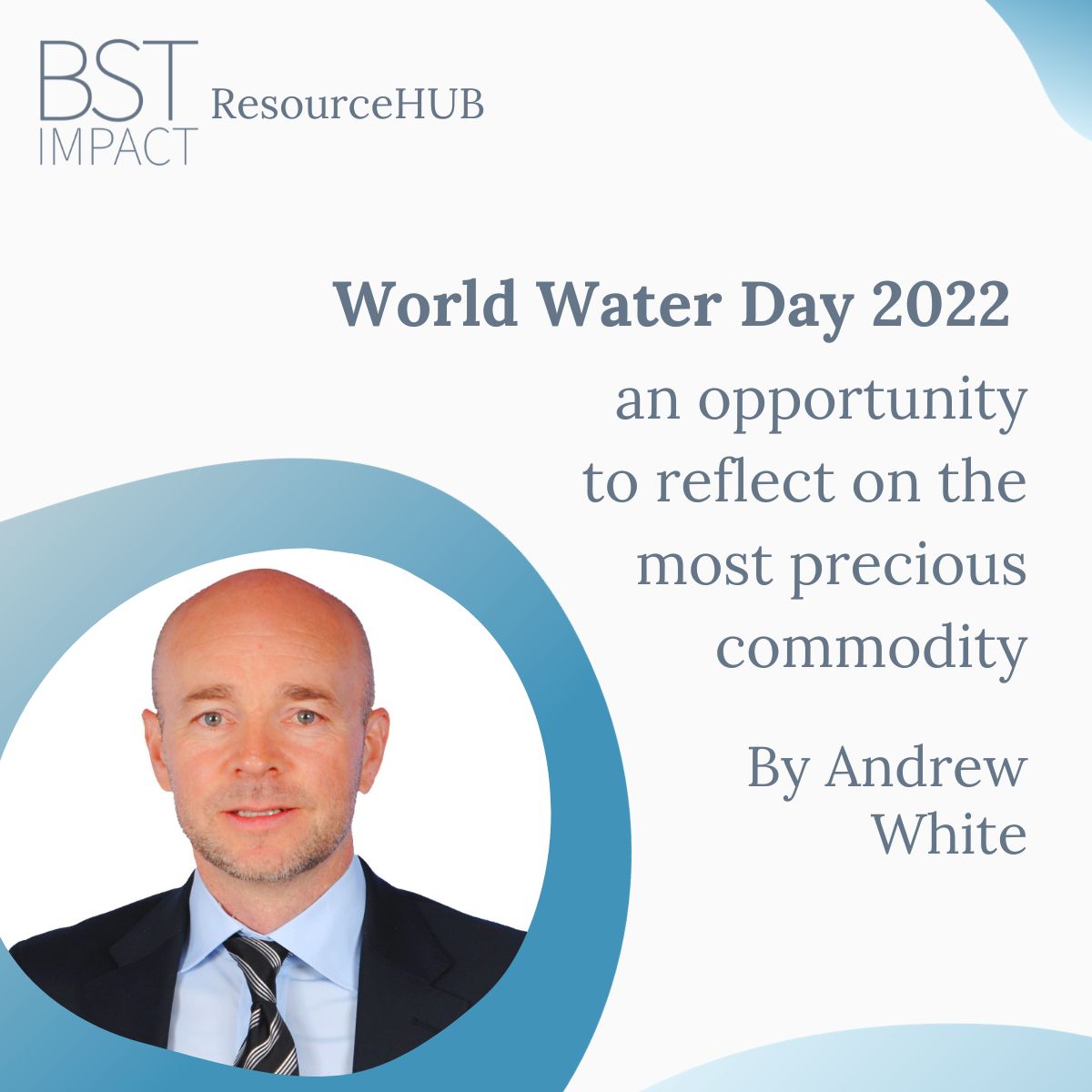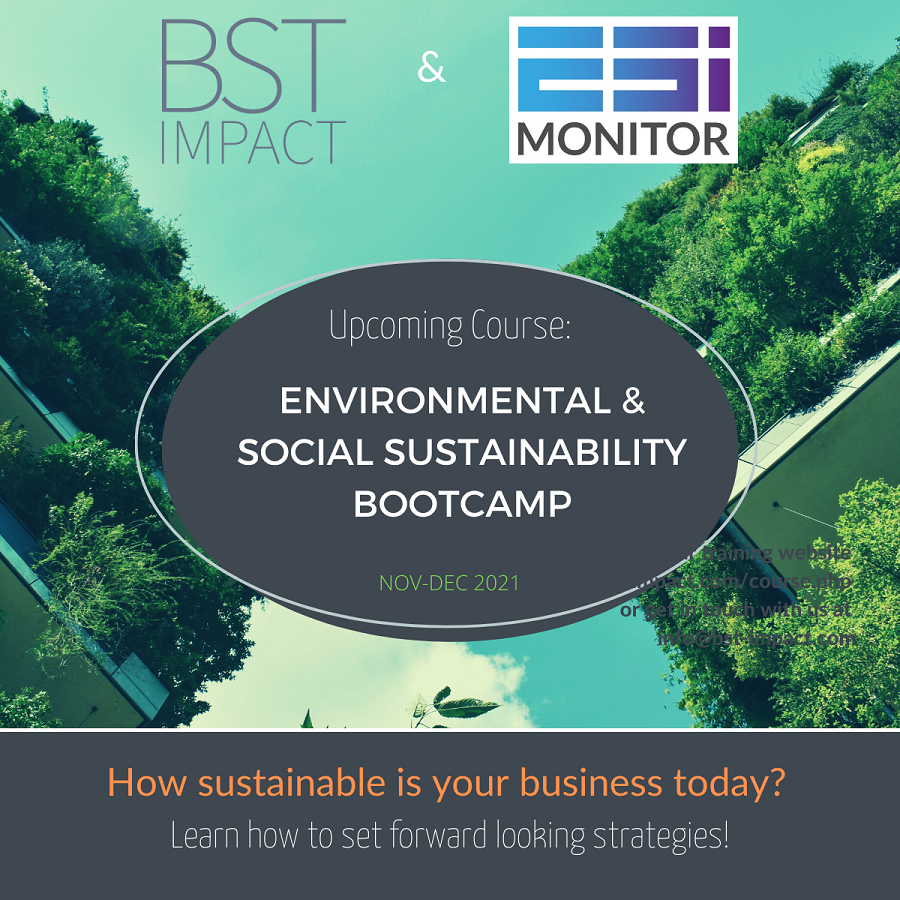
World Water Day 2022 – an opportunity to reflect on the most precious commodity
We are pleased to present an insightful piece by Associate Expert Andrew White who highlights the importance of water as a commodity that is essential but also limited, and sometimes overlooked compared to other kinds of commodities like oil, gas or precious metals.
World Water Day 2022 – an opportunity to reflect on the most precious commodity
Commodity crunch
War in Ukraine has ushered in a new era of geopolitical tensions and international sanctions. And human lives and cities are being decimated. As in many conflicts past and present, there are economic consequences too. One of the most obvious during the current crisis is the impact on commodity prices. The current and future fossil fuel price spike may be the most visible and painful of these for governments and consumers. Alongside this new energy crunch, the push towards a more rapid energy transition gathers pace. Investors, while monitoring how things will play out between a short term need to find non-Russian oil and gas (most likely from other equally totalitarian, undemocratic regimes) and a potentially faster paced move towards renewables, will be aware of how the war is impacting other commodities too. The gold price has been touching record highs in recent weeks as investors head for a traditional safe haven. Sanctions on Russia mean there are concerns about the supply of other precious and rare metals, such as palladium. Russia is a major supplier so the price of this particular metal has also risen sharply.
The water challenge
So what has all this got to do with water? Water, or more specifically fresh water, is also a valuable commodity, and one that has historically also been linked to conflict and geo-political manoeuvres. At the international level, damming by countries upstream can increase the risk of disputes with countries that rely on rivers for much of their water supply further downstream. In fact, water-sharing agreements have been common practice for de-escalating these kinds of dispute. Over 200 have been signed since the end of the Second World War.
Water scarcity is increasing the likelihood of conflict around the world, and water scarcity is being exacerbated by climate change, drought and population growth. Renewable freshwater resources per capita have been falling over the past 50 years, in some countries – such as Brazil – at an alarming rate (1) . Like some precious metals, fresh water is not a commodity that can be substituted (though many countries such as Egypt and Saudi Arabia have invested heavily in desalination plants). It is essential not only for life on earth, but vital for a range of industries. From agriculture to beverages, from industrial applications to consumer staples, there is growing demand for fresh, clean water, but only a very limited supply of it is available.
Water is an essential input to global agriculture, whether in the form of rainfed sources or pumped irrigation. There are a number of countries across South Asia, Africa and Latin America which use more than 90 percent of their water withdrawals for agriculture. Globally, the United States is the largest user of industrial water, withdrawing over 300 billion m³ per year. This is significantly greater than China, the second largest, at 140 billion m³. France, Spain, Germany and Italy are heavy users. But with potential water shortages all over the globe – a number of cities have in recent times introduced rationing – there is clearly a need for governments and the private sector to invest in water infrastructure and related industries.
The water opportunity
So the equation for investors is quite a simple one in theory; there is almost unlimited demand for fresh water but increasingly, a limited supply, made worse by climate change and geo-political risk. Industries active in the water sector are therefore likely to be the beneficiaries of this unequal demand supply equation. Such industries include utilities, filtration companies, manufacturers of water pumps, transport pipes, purification / treatment and conservation systems and so on. Given that the range of firms involved in the water industry is very broad, getting exposure to water may be difficult for some investors, as it means buying a wide range of companies across different geographies. Water sustainability ETFs may offer one route to gain exposure to the demand for sustainable water supply and usage and some specialist sustainable water equity vehicles are now emerging. Water as a commodity may not have the same cachet as buying in to green tech businesses, renewable energy or electric vehicles, but the water industry can give exposure to a very important sustainable investment theme, while at the same time potentially providing support to key industries on which we all depend, such as agriculture. And this may help in reducing another source of human conflict...
(1) Water Use and Stress - Our World in Data
Article first published on:
https://www.linkedin.com/posts/activity-6911960946814906368-qIo-?utm_source=linkedin_share&utm_medium=member_desktop_web
About Andrew White: Andrew is a senior research consultant with 25 years of experience working in the sustainable investment industry for advisory firms and asset managers and he is specialized in ESG research, SRI fund strategy creation and investor profiling.
To know more about Andrew and his expertise, visit his website and LinkedIn profile:
https://www.sri-consulting.co.uk/
https://www.linkedin.com/in/andy-white-a542325b/







